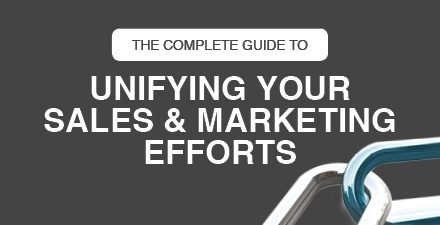Setting up your manufacturing company’s inbound marketing program (and software) can be a big undertaking. But taking the time to perform a solid inbound marketing setup is critical to getting results. Once your strategy and software are in place, you can start making inbound marketing work for your B2B manufacturing company.
But before you get to that, the question still remains: Does inbound marketing work for B2B manufacturing companies? And the answer is an emphatic YES! In fact, inbound marketing is the perfect strategy for you, and here’s why:
The B2B “Long Game” Strategy
By focusing on creating innovative, relevant content, your company is attracting the right traffic needed to convert to leads and eventually sales. As a manufacturing company, you’re probably familiar with the “long game”- in terms of sales and relationship management- so let your inbound strategy also follow suit. Inbound isn't just about getting new leads, it's about nurturing existing customers through a comprehensive sales, service, and support cycle.
Establish Baseline Goals & Timelines
Your inbound marketing strategy should include a baseline, future processes, goals and objectives, and a plan to measure these goals and objectives [Equient]. Establish SMART goals, and an outlined timeline of how you’re going to achieve them.
Explore the Competitive Landscape
In the digital era, it is easier than ever to “check up” on how the competition is doing. This can be done through a comprehensive competitive analysis that includes the following:
- A breakdown of social followers
- An analysis of the content they offer (through social and on their website)
- An SEO report on keywords you’ll both be competing for
Lastly, be sure to compare how you feel their website is performing versus your own manufacturing website.
Establish Brand Messaging & Positioning
As simple as it may seem, many manufacturing companies are still not focusing on establishing a solid brand messaging and positioning- they’re more worried about a stand-out logo or their website colors. Those are important too, but buyers are looking deeper than that.
It’s been reported that, “70% of a B2B buyer’s research is done online before reaching out to a potential vendor partner” [Weidert].
In other words, if you want to make a big impact on potential buyers, have a strong brand message (and position) to catch their attention. And the strongest way to establish powerful messaging, is to develop well-thought out buyer personas.
Create a Content Schedule
Proper inbound marketing cannot work without content creation. Since manufacturing companies typically have longer sales cycles, it’s important to devise a thorough timeline that includes content for buyer’s at any stage in their journey- whether they’re leads, prospects, or returning customers.
HubSpot is super helpful with content scheduling, and gives you the ability to assign workflows to buyers to best support their needs during the sales process.
Inbound Sales Enablement
Now that you’ve generated new leads for your B2B manufacturing company, it’s time for your sales team to take action! It’s vital for your salespeople to remember: Inbound leads are more qualified and informed than the usual outbound leads.
It may be necessary to take an audit of the current sales process. Don’t be afraid to realign your sales and marketing teams so that they can work together to ensure the most relevant content is given to prospects. Remember: it’s marketing’s job to provide relevant content and enable the sales department to focus on the pipeline, and ultimately close the deal.
Customer-Relationship Management (CRM) platforms, such as HubSpot, enable event-triggered technology to alert your sales team, when someone is ready. It’s marketing’s job to make sure these templates and tools are correctly set up for your sales team.
Following the steps above will help you build a stronger inbound marketing strategy within your sales and marketing teams, as well as with your potential manufacturing clients. Not only does inbound marketing create a clear structure for both teams, but it will help you to build stronger, longer relationships with clients.

